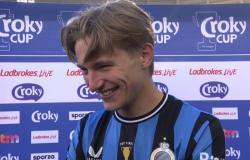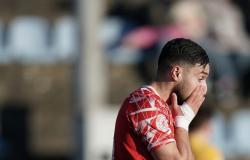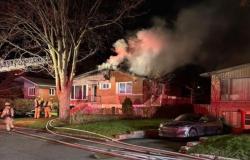Between radical criticism of the world order or return to more traditional diplomacy, the fracture lines are not resolved
François Mabille
Director of the Observatory of Geopolitics of Religions of Iris, author
François’ pontificate arrives at a time of rocking for the Catholic church. If his heritage is deep, he is also marked by internal tensions and unresolved fractures that draw the major issues of his succession. First line of fracture: the relationship to liberalism. Confronted with moral liberalism, François has been conservative, refusing to modify Catholic doctrine on subjects such as sexual morality or female priesthood. This choice alienated part of the progressive camp, which awaited doctrinal reforms.
Simultaneously, his constant opposition to economic liberalism and his vigorous criticism of the international financial order brought him closer to left -wing sensitivities, while moving away from him many conservatives attached to the defense of the market economy.
On the ecclesial level, François opted for a pastoral attitude, favoring the support of people living on the fringes of the Standards of the Church rather than a doctrinaire insistence. This approach has irritated those, many among bishops and cardinals, who would like the Church to become a doctrinal lighthouse in the face of what is perceived as contemporary drifts.
If his authority has asserted himself in the conduct of internal reforms – in particular the centralization of certain decisions and the reorganization of the curia -, he failed to constitute a lasting majority to install a truly less hierarchical, more collegial and synodal church. The synod on synodality revealed both hopes of change and powerful resistances within the institution.
Finally, on the international level, as shown by his diplomatic action, François did not know how to establish real geopolitical alliances. His desire for emancipation from the West, its opening to Russia, China and the countries of the South and the BRICS did not give the Vatican a new lever of solid influence. The diplomatic loneliness of the Holy See remains worrying in a world where power relations are essential.
At the time of preparing his succession, several issues therefore appear clearly. Should we continue the pastoral agenda of François, at the risk of deepening internal divisions, or refocusing the Church on a clearer affirmation of his doctrine? Should we maintain a radical criticism of the world order or return to more traditional diplomacy, built on realistic alliances? Finally, should we reform further ecclesial governance or consolidate the hierarchical structure?
The next conclave will have to answer these questions by discerning not only which man for what time, but also which church for which world.
Continue reforms, embody unity, fix global priorities, speak to the world: these are all questions and emergencies
Blandine Chelini-Pont
Professor of contemporary history and international relations, University of Aix-Marseille
Quadrature of the circle, Chinese puzzle, the election of a pope is not a sinecure. He must meet a crossing of criteria that are not the same among all cardinals. On the reform of the church, first question: must the Pope who comes to continue the sites opened by the previous one, suspend them temporarily or close them because they put the structure in danger?
-François has not stopped to defend the “clericalism” of the positions of authority in the curia and in the dioceses to demand from the institutional church that she can see himself as a service and that she listens to herself. He started financial reforms, tackled sexual abuse. He organized a truly original “synod” mixing clerics, committed laity, men and women, young people, marginalized in order to discuss together on the future of the Church and listen to each other on the questions of the moment.
But the questions of the moment and the answers provided in the synod created intense controversial between “progressives” and “conservatives”. The conclave therefore risks being very attentive to want to extinguish them. What cardinal would be the most able to embody the unity of the Church and maintain intercatholic communion, when the latter is crossed by currents which can make it burst?
As for fixing global priorities, each pope offers guidelines – which he has matured of his own experience – supposed to help Catholics to identify themselves as such and to consider themselves the same family despite all their diversity. What priorities to achieve Catholic communion? Encourage young churches, especially in Asia and Africa? Teach and disseminate ecological theology? Focus on the love of neighbor and the concern for the excluded and migrants?
Finally, the pope has become a barometer and a global dimension moral compass during the XXe century, even if this assertion must be nuanced. It represents “Catholic position” through any type of media media within companies and through multi -end diplomacy in international relations. His word affects eternal or very contemporary societal questions: family, sexuality, end of life, work, environment, economy, political ethics, artificial intelligence recently.
Should we strengthen this dimension of “talking to the world”? Also, as the Vatican is in contact with almost all states and major organizations, will the conclave consider that it is the most urgent task of the next Pope? Make diplomacy and defend at all costs the cause of peace and the protection of civilians, the rights of peoples, cooperation between states, the merits of multilateralism and disarmament.
The Vatican. The papacy in front of a world in crisisby François Mabille, Eyrolles, 2025.
Geopolitics of religionsDe Blandine Chelini-Pont, Roland Dubertrand et Valentine Zuber, Le Cavalier Bleu, 2019.
The Vatican. The papacy in front of a world in crisisby François Mabille, Eyrolles, 2025.
Geopolitics of religionsDe Blandine Chelini-Pont, Roland Dubertrand et Valentine Zuber, Le Cavalier Bleu, 2019.
The Vatican. The papacy in front of a world in crisisby François Mabille, Eyrolles, 2025.
Geopolitics of religionsDe Blandine Chelini-Pont, Roland Dubertrand et Valentine Zuber, Le Cavalier Bleu, 2019.
The Journal of Free Intelligence
“It is through extensive and accurate information that we would like to give to all free intelligences The way to understand and judge the events of the world themselves. »
Such was “Our goal”as Jean Jaurès wrote in the first editorial of humanity.
120 years later, he has not changed.
Thanks to you.
Support us! Your donation will be tax exempt: give 5 € will come back to € 1.65. The price of a coffee.
I want to know more!






